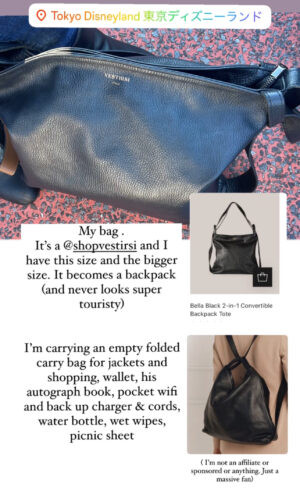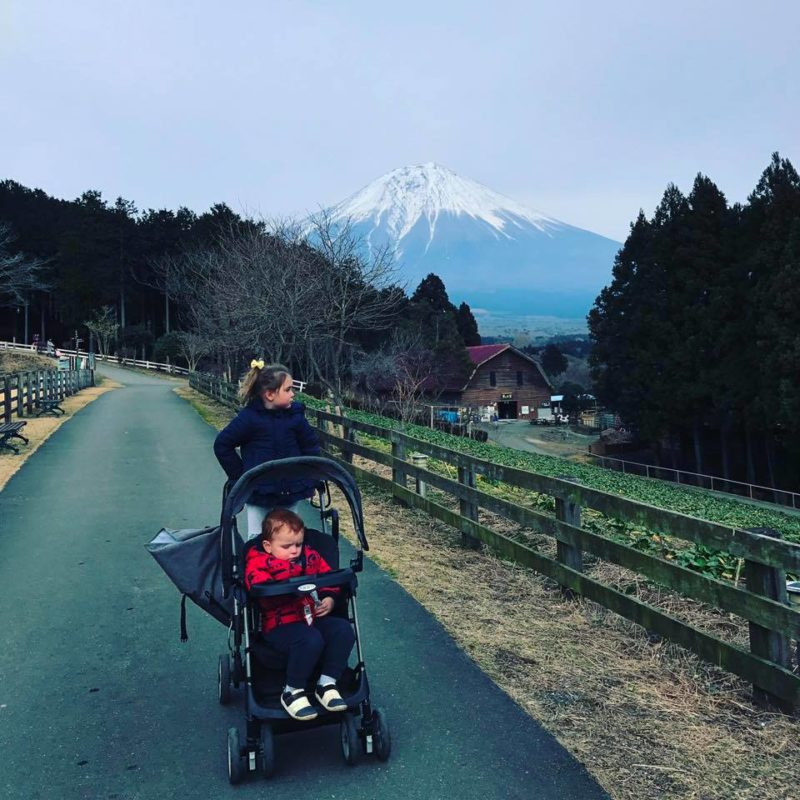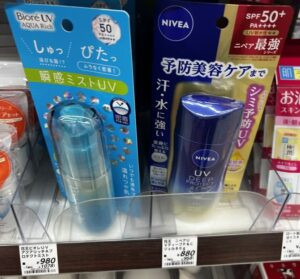Planning a trip to Japan and wondering what to pack? Let SIXT.VN guide you through the essential items for a smooth and enjoyable journey. This comprehensive guide covers everything from travel documents and electronics to clothing and personal care items. Whether you’re exploring bustling cities or serene landscapes, ensure you’re prepared with the right travel essentials and packing tips for your Japanese adventure.
1. Essential Documents and Accessories for Your Japan Trip
What documents and accessories are absolutely essential for a trip to Japan, regardless of the season?
Absolutely, ensuring you have the right documents and accessories is the first step to a stress-free trip. Key items include your passport, a reliable passport wallet, and essential logistical information. Let’s dive into why each of these is crucial for your adventure in Japan.
- Passport: This is non-negotiable. Ensure your passport is valid for at least six months beyond your intended stay. Take a photo of your passport and boarding pass before boarding the plane. This simple step can save you a lot of hassle when filling out immigration forms or in case of loss. According to the U.S. Department of State, having a copy of your passport can expedite the replacement process if it gets lost or stolen.
- Passport Wallet: In Japan, you are required to keep your passport on you at all times. I recommend a family passport wallet with a zipper is ideal. It keeps everything secure and protects your passport from water damage. Keeping frequent flyer cards and suitcase padlock keys there too can streamline your travel experience.
- Accommodation Information: Have a piece of paper with your first accommodation address written out or printed out (even better if it is written in Japanese and English). This is a lifesaver for immigration and taxi drivers.
2. Hand Luggage Essentials for a Comfortable Flight to Japan
What should I pack in my hand luggage for a comfortable and convenient flight to Japan?
Your hand luggage is your lifeline during the flight. Pack items that will keep you comfortable, entertained, and prepared for any eventuality. Focus on entertainment for kids, practical items, and essentials to freshen up upon arrival.
- Plane Entertainment for Kids: Keep the little ones occupied with books, tablets, and travel games. A detailed list of what to pack for planes with kids can be found in articles about drama-free flights.
- Practical Hand Luggage: Include items such as chargers, snacks, and a change of clothes. Details on what to include in your hand luggage can be found in guides about packing practical items.
- Vestiri Bag: For getting around Japan, consider a versatile bag like the Vestiri bag, which can be used as a shoulder bag or backpack.
 Vestiri bag perfect for navigating Japan, offering versatility as a shoulder bag or backpack
Vestiri bag perfect for navigating Japan, offering versatility as a shoulder bag or backpack
3. Clothing Essentials: What to Pack for Any Trip to Japan
What types of clothing are essential for any trip to Japan, regardless of the season?
Packing the right clothes can make or break your trip. Focus on versatile items that can be layered, are easy to care for, and respect Japanese customs. Prioritize comfort and practicality.
- Underwear and Socks: Pack enough for at least five days, and consider booking a hotel with a coin laundry to lighten your load. Make sure the socks don’t have holes in them. Japan is one country where you will be taking shoes off and everyone will see your socks. Random parenting hack: bring lots of old undies. Wash and wear for the trip and then never bring them home with you.
- Shoes: Pack two pairs of comfortable walking shoes and an extra pair for nicer restaurants. Sore feet need a break from different types of shoes. Different shoes just wear differently and press on different types of the feet so it’s great to be able to give your feet a “break.” It’s also a great option if one pair of shoes break.
- Strollers & Baby Carriers: Essential for families with young children, making navigation easier. Consider a lightweight and compact stroller for easy transport.
 Stroller in front of Mt Fuji, offering comfort and convenience for families exploring Japan
Stroller in front of Mt Fuji, offering comfort and convenience for families exploring Japan
4. Electronic Devices and Accessories: Staying Connected in Japan
What electronic devices and accessories should I pack for traveling to Japan?
In today’s digital age, staying connected is crucial. Make sure you have the necessary adapters, chargers, and portable power banks to keep your devices running throughout your trip.
- Chargers and International Adapters: Ensure your devices stay charged with the correct adapters for Japanese outlets.
- Portable Charger: Keep your devices powered on the go with a portable charger.
5. Managing Finances: Cash and Other Payment Methods in Japan
How much cash should I bring to Japan, and what other payment methods are commonly used?
While Japan is becoming more card-friendly, cash is still king. A wallet with a coin section or a separate coin purse is essential. Japan is still a society that relies on cash for many purchases. You will be carrying around more coins than you may be used to.
6. Laundry and Hygiene: Packing for Cleanliness and Convenience
What laundry and personal hygiene items should I include in my suitcase for a trip to Japan?
Staying clean and fresh is important, especially on a long trip. Pack items that will help you maintain your hygiene and manage laundry efficiently.
- Collapsible Laundry Hamper: Keep your space tidy with a collapsible laundry hamper.
- Allergy Considerations: If you are allergic to certain types of washing powder/laundry liquids – Please make sure to bring from home but ALSO please email your accommodation to ask if it is possible to put your own washing detergent into the machine while doing laundry in Japan.
- Tampons: Pack your preferred brand, as Japanese options may differ.
- Deodorant: Bring your preferred deodorant, as Japanese brands may be lighter.
- Toothpaste: – especially if you like Colgate. Japanese toothpastes are often fruit flavored and colgate is hard to find. So bring from home if you have a certain brand that you are loyal to.
 Coin Laundry at Hatago Inn, Shizuoka, providing convenient laundry facilities for travelers
Coin Laundry at Hatago Inn, Shizuoka, providing convenient laundry facilities for travelers
7. Health and Wellness: What Medications and Supplements to Pack for Japan
What health-related items, such as medications and supplements, should I bring to Japan?
Your health is a priority. Ensure you have all necessary medications, supplements, and health-related items to stay well during your trip.
- Medication: Make sure your medication is approved and allowed in Japan. Lactaid If you have a dairy intolerance of any sort, please also note that medications like “Lactaid” aren’t easy to get in Japan.
- Fibre Supplements: Combat potential constipation with fibre supplements.
8. Travel Comfort: Items to Enhance Your Travel Experience in Japan
What items can enhance my travel comfort and convenience while in Japan?
Small items can make a big difference in your travel experience. Pack items that will provide comfort, convenience, and a touch of home.
- Plastic Bags: Useful for storing wrappers and tissues, as public bins may be scarce.
- Items to Keep Hotel Room Safe: Ensure your hotel room is safe and fun for kids.
- Stickers and Colouring Books: Keep kids entertained in restaurants and on train trips.
 Lucy paper dolls from Daiso, a great way to entertain kids in restaurants
Lucy paper dolls from Daiso, a great way to entertain kids in restaurants
9. Seasonal Packing: Adapting Your Suitcase to Japan’s Climate
How should I adjust my packing list based on the specific season I’m traveling to Japan?
Japan’s climate varies significantly by season. Adjust your packing list to ensure you are prepared for the weather conditions you will encounter.
- December, January, February, Early March: Pack a puffer jacket, beanie, gloves, and long trousers.
- Mid-Late March, April, May: Bring a light jacket, hat, sweaters, and hay fever medicine.
- June, July, August, September: Pack light, breathable shirts, shorts, swimsuits, and mosquito repellent. Download the MyMizu app.
- September, October, November & Early December: Pack a medium to light jacket/coat for cooler days, mornings and evenings -A beanie or some kind of hat -1-2 sweaters.
10. What Not to Pack for Japan: Items to Leave at Home
What items are unnecessary or not recommended to bring to Japan?
Avoid packing items that are restricted, culturally insensitive, or easily available in Japan.
- Medication Not Allowed in Japan: Check the list of prohibited medications.
- Perfume and Colognes: Avoid overpowering scents, as they are considered impolite.
11. Packing for Families: Essential Items for Traveling to Japan with Children
What specific items should families pack when traveling to Japan with children to ensure a smooth and enjoyable trip?
Traveling with children requires extra preparation. Pack items that will keep them comfortable, entertained, and healthy throughout the journey.
- Baby Food and Familiar Snacks: Bring familiar snacks to help children adjust to new foods. The convenience stores in Japan have amazing options and lots of healthy options but it’s also great to have a few favourite snacks from home while everyone adjusts.
- Nappies/Diapers: Pack enough for the first few days to avoid immediate shopping trips.
- Ziplock Bags: Useful for storing unfinished meals.
 How cute are the Buzz Lightyear inspired pjs at the Toy Story Hotel?These are provided for guests to use during their stay.
How cute are the Buzz Lightyear inspired pjs at the Toy Story Hotel?These are provided for guests to use during their stay.
12. Staying Informed: Apps and Resources for Your Japan Trip
What apps and resources should I download or bookmark before traveling to Japan?
Stay informed and connected with essential apps and resources that provide useful information and services during your trip.
- Google Translate App: Handy for reading rules and food labels.
- MyMizu App: Find locations to refill your water bottle.
13. Adapting to Japanese Culture: Cultural Considerations for Packing
Are there any cultural considerations that should influence what I pack for my trip to Japan?
Respecting Japanese culture is essential. Pack clothing and accessories that are appropriate and considerate.
- Culturally Appropriate Clothing: Dress modestly and avoid overly revealing outfits.
- Footwear: Choose shoes that are easy to remove, as you’ll often need to take them off indoors.
14. Pre-Travel Checklist: Final Preparations Before Your Japan Adventure
What is the final checklist I should review before embarking on my trip to Japan?
Ensure you’ve covered all bases with a final checklist that includes essential preparations and last-minute tasks.
- Organize Pre-Travel Arrangements: Review places and things to organize before your holiday.
- Step-by-Step Planning: Follow a step-by-step guide to organize your trip.
15. Accommodation Recommendations: Where to Stay in Japan
What are some recommended accommodations for families and budget travelers in Japan?
Finding the right accommodation is crucial for a comfortable stay. Explore recommended hotels, ryokans, and family-friendly options.
- Family Hotels in Tokyo: Explore recommended hotels for families in Tokyo.
- Family Hotels in Kyoto: Check out favorite places to stay in Kyoto.
- Ryokans for Families: Consider a ryokan experience.
- Hotels with Pools: Review hotels with pools in Japan.
16. Emergency Preparedness: What to Pack for Unexpected Situations in Japan
What should I pack to prepare for unexpected situations or emergencies during my trip to Japan?
Being prepared for emergencies can provide peace of mind. Pack items that will help you handle unexpected situations effectively.
- First-Aid Kit: Include essentials like bandages, antiseptic wipes, and pain relievers.
- Emergency Contact Information: Keep a list of important contacts and addresses.
17. Navigating Transportation: Essential Items for Getting Around Japan
What items are essential for navigating Japan’s transportation system efficiently?
Getting around Japan is easy with its efficient transportation system. Pack items that will help you navigate smoothly.
- Japan Rail Pass: If you plan to travel extensively by train, consider purchasing a Japan Rail Pass.
- Comfortable Shoes: Essential for walking and standing in stations.
18. Food Allergies: Packing and Preparing for Dietary Needs in Japan
How should I prepare and what should I pack if I have food allergies while traveling in Japan?
Traveling with food allergies requires careful planning. Pack items that will help you manage your dietary needs safely.
- Allergy Translation Cards: Carry cards with translations of your allergies in Japanese.
- Safe Snacks: Pack snacks that you know are safe for you to eat.
19. Staying Comfortable on Long Flights: Packing for In-Flight Comfort
What items can help me stay comfortable on a long flight to Japan?
Long flights can be tiring. Pack items that will help you relax and arrive refreshed.
- Travel Pillow: Provides neck support for comfortable sleep.
- Eye Mask and Earplugs: Block out light and noise for better rest.
20. Post-Trip: Items to Bring Back from Japan
What items should I consider bringing back from Japan as souvenirs or for personal use?
Bringing back souvenirs and unique items can be a great way to remember your trip.
- Unique Snacks: Purchase local snacks that you can’t find at home.
- Traditional Crafts: Consider buying traditional crafts as souvenirs.
21. Understanding Regional Variations: Adjusting Your Packing List for Different Regions of Japan
How should I modify my packing list based on the specific regions I plan to visit in Japan, considering their unique climates and customs?
Japan’s climate and customs can vary significantly between regions. Adjust your packing list to suit the specific areas you’ll be exploring.
- Hokkaido: Pack for colder temperatures, even in summer.
- Okinawa: Bring light clothing and swimwear for the subtropical climate.
22. Special Events and Festivals: Packing for Specific Occasions in Japan
What should I pack if my trip to Japan coincides with a special event or festival?
Attending a festival or special event can be a highlight of your trip. Pack items that are appropriate for the occasion.
- Yukata: If attending a summer festival, consider wearing a yukata (light cotton kimono).
- Appropriate Attire: Check the dress code for any formal events.
23. Sustainable Travel: Packing for Eco-Friendly Tourism in Japan
How can I pack to promote sustainable and eco-friendly tourism in Japan?
Traveling sustainably helps preserve Japan’s natural beauty and cultural heritage.
- Reusable Water Bottle: Reduce plastic waste by bringing a reusable water bottle.
- Reusable Shopping Bag: Avoid single-use plastic bags by packing a reusable shopping bag.
 Japanese sunscreen brands I like.
Japanese sunscreen brands I like.
24. Luxury Travel: Packing for High-End Experiences in Japan
What should I pack to enhance my experience if I’m planning a luxury trip to Japan?
Luxury travel calls for sophisticated packing. Bring items that reflect elegance and comfort.
- High-Quality Clothing: Pack stylish and well-fitting clothing for upscale dining and events.
- Elegant Accessories: Enhance your outfits with sophisticated accessories.
25. Business Travel: Essential Items for a Work Trip to Japan
What specific items should I include when packing for a business trip to Japan to ensure I am prepared for meetings and professional engagements?
Business trips require a different packing approach. Focus on professional attire, presentation materials, and business etiquette.
- Business Cards: Essential for networking and introductions.
- Professional Attire: Pack appropriate business attire for meetings and conferences.
26. Photography Enthusiasts: Packing for Capturing Memories in Japan
What photography equipment and accessories should I pack to capture the best memories during my trip to Japan?
Capture stunning photos and videos with the right equipment.
- Camera and Lenses: Bring your preferred camera and a versatile set of lenses.
- Extra Batteries and Memory Cards: Ensure you have enough power and storage for your photos.
27. Understanding Japanese Sizes: Clothing and Shoe Conversion Tips
How do Japanese clothing and shoe sizes compare to those in my home country, and what should I consider when packing or shopping for these items in Japan?
Understanding Japanese sizes can help you pack and shop more effectively.
- Clothing Size Chart: Research clothing size conversions before you go.
- Shoe Size Conversion: Be aware of shoe size differences and try on shoes before buying.
28. Unique Japanese Items: What to Pack for Specific Activities and Interests
Are there any unique Japanese items or products that I should consider packing for specific activities or interests during my trip?
Enhance your experience by packing items that are unique to Japan.
- Calligraphy Set: If interested in calligraphy, bring a portable set.
- Origami Paper: Pack origami paper for a fun and creative activity.
29. Packing for Accessibility: Ensuring a Comfortable Trip for Travelers with Disabilities
What should travelers with disabilities consider packing to ensure a comfortable and accessible trip to Japan?
Accessibility is key for travelers with disabilities.
- Mobility Aids: Bring any necessary mobility aids, such as wheelchairs or walking sticks.
- Medication List: Keep a detailed list of medications and allergies.
30. Travel Insurance: Why It’s an Essential Item to Consider Before Traveling to Japan
Why is travel insurance an essential item to consider before traveling to Japan, and what aspects should it cover?
Travel insurance provides peace of mind and financial protection.
- Medical Coverage: Ensure your policy covers medical expenses and emergencies.
- Trip Cancellation Coverage: Protect your investment in case of unforeseen circumstances.
31. Optimize Your Trip to Japan with SIXT.VN
Planning a trip to Japan can be overwhelming, but with SIXT.VN, it doesn’t have to be. We offer a range of services designed to make your journey seamless and enjoyable:
- Tailored Itineraries: Let our travel experts create a personalized itinerary based on your interests and schedule.
- Airport Transfers: Enjoy stress-free airport pickups and drop-offs with our reliable transfer service.
- Hotel Bookings: Choose from a wide selection of hotels that fit your budget and preferences.
- Sightseeing Tours: Explore Japan’s top attractions with our guided tours.
- Flight Bookings: Get the best deals on flights that suit your travel plans.
Don’t let the challenges of planning a trip hold you back. Visit SIXT.VN today to discover our comprehensive travel packages and start your unforgettable Japanese adventure. Contact us now for a consultation and let us help you create the perfect trip.
Address: 260 Cau Giay, Hanoi, Vietnam
Hotline/Whatsapp: +84 986 244 358
Website: SIXT.VN
FAQ: Packing for Japan
1. What is the most important thing to pack for Japan?
Your passport is the most important thing to pack for Japan, ensuring it’s valid for at least six months beyond your stay.
2. How much cash should I bring to Japan?
Bring enough cash for daily expenses, as many smaller establishments still prefer cash payments. $500-$1000 is reasonable for a 1-2 week trip.
3. What type of clothing is appropriate for visiting temples in Japan?
Modest clothing is appropriate for visiting temples in Japan, covering shoulders and knees.
4. Are international adapters necessary for Japan?
Yes, international adapters are necessary for Japan, as they use Type A and B plugs with a voltage of 100V.
5. What medications should I pack for Japan?
Pack any prescription medications you need, along with a copy of your prescription and a list of generic names.
6. Is it necessary to bring insect repellent to Japan?
Yes, it is often necessary to bring insect repellent to Japan, especially during the humid summer months.
7. Should I pack a phrasebook or translation app for Japan?
Yes, packing a phrasebook or downloading a translation app for Japan can be extremely helpful, as not everyone speaks English.
8. What type of shoes is best to pack for Japan?
Comfortable walking shoes are best to pack for Japan, as you’ll be doing a lot of walking and standing.
9. What are some essential toiletries to bring to Japan?
Essential toiletries to bring to Japan include your preferred brand of deodorant, toothpaste, and any specific skincare products you use.
10. Is it necessary to pack a travel umbrella or raincoat for Japan?
Yes, it is advisable to pack a travel umbrella or raincoat for Japan, especially during the rainy season (June-July).



